Pilgrimage to honour Devon missionary bishop
- Published
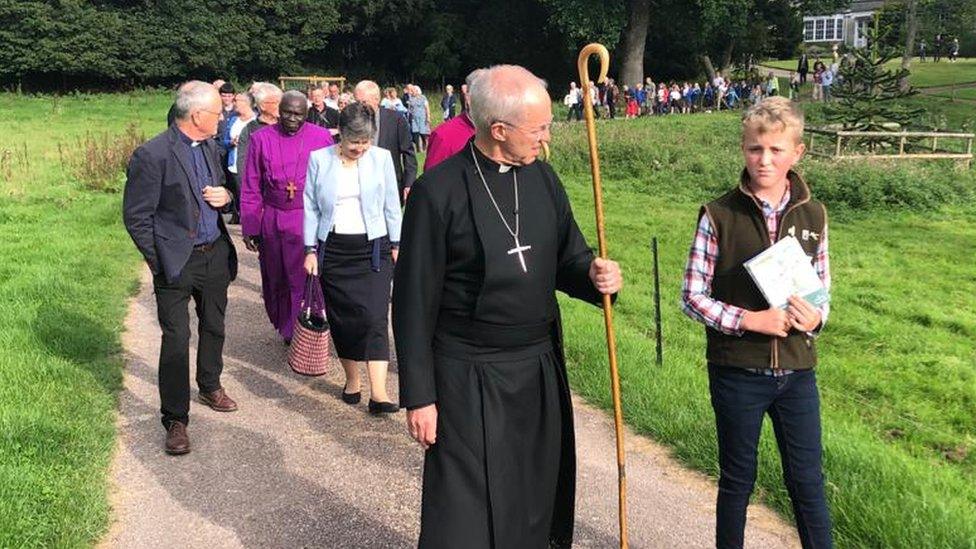
Archbishop of Canterbury Justin Welby leading the first pilgrimage
A new pilgrimage route in honour of a missionary bishop killed 150 years ago on a Pacific island has been opened by the Archbishop of Canterbury.
The Patteson's Way in Devon commemorates John Coleridge Patteson, the first Bishop of Melanesia.
Archbishop Justin Welby led the first pilgrimage after opening the route near Exeter on Saturday.
Patteson, who grew up in the village of Feniton, was killed by a wound to the head on the island of Nukapu in 1871.
His death is believed to be a possible case of mistaken identity.
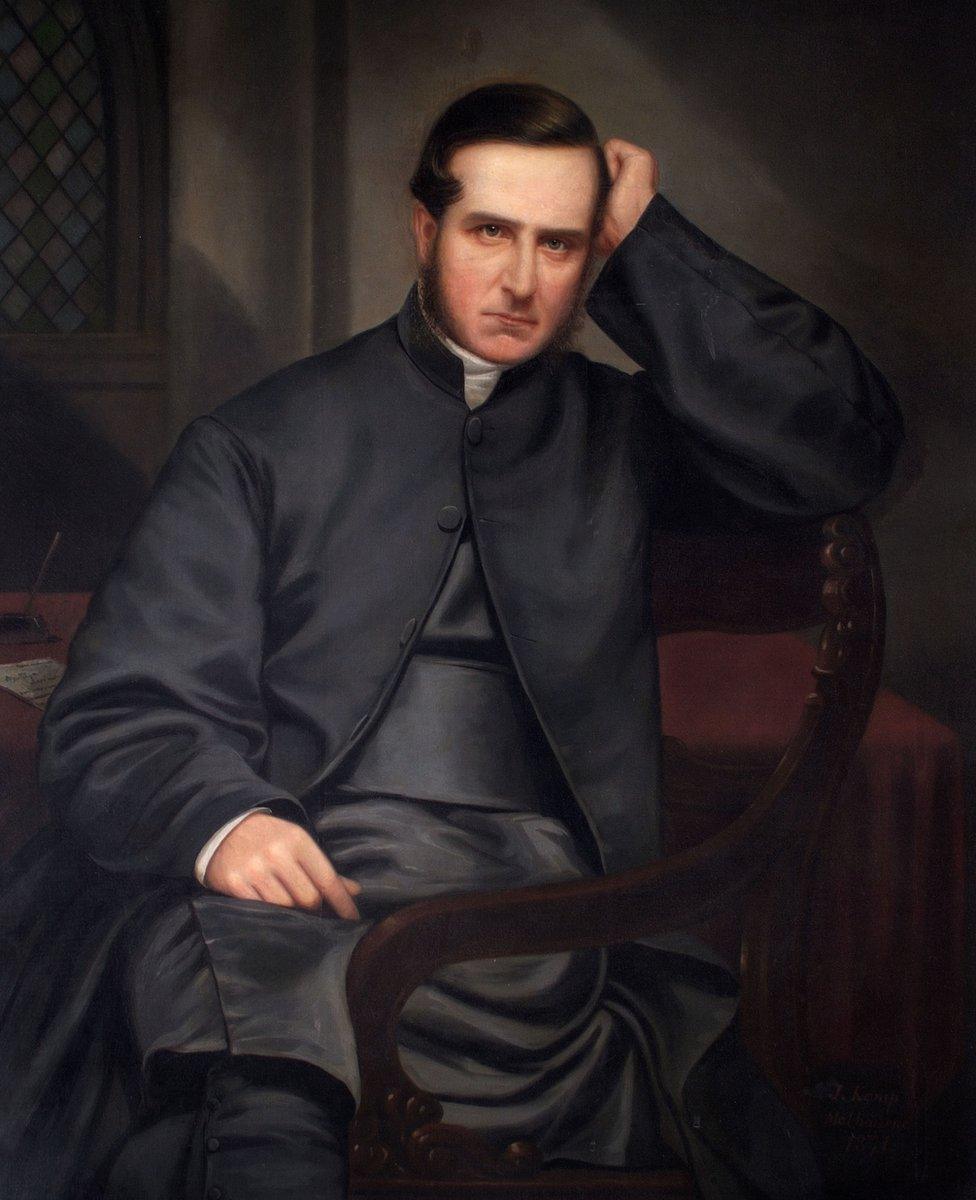
A portrait of John Coleridge Patteson held in Lambeth Palace in London
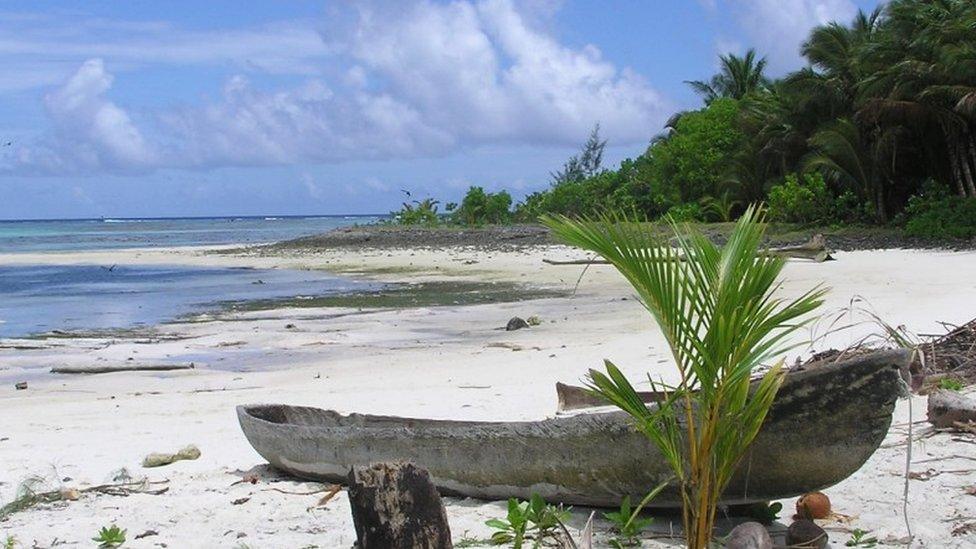
Patterson was killed in 1871 on the Melanesian Island of Nukapu
Melanesian Christians honour Patteson as a martyr, with many regarding his family home and churches in Devon as places of pilgrimage, the Diocese of Exeter said.
The Anglican Province of Melanesia covers the nations of the Solomon Islands, Vanuatu and New Caledonia.
Many of the islands are already being affected by climate change and the route has been opened in partnership with Melanesian Mission UK, based in Devon, which campaigns to raise awareness of the issue.
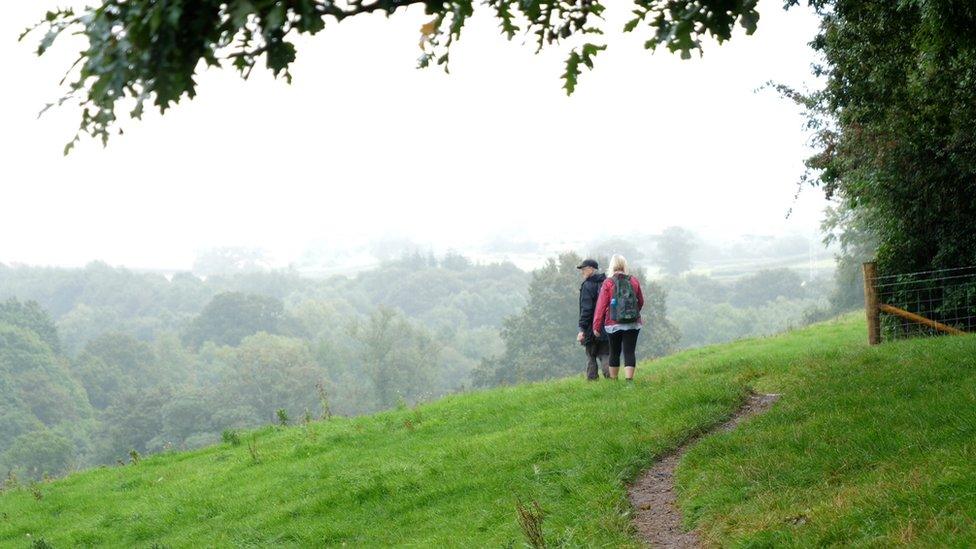
Walkers on a section of the newly opened Patteson's Way
The eight mile (13km) circular pilgrimage begins at St Andrew's Church in Feniton, near Ottery St Mary.
Archbishop Welby also unveiled a plaque in the churchyard and met with local school children, who along with the Diocese of Exeter helped set up the route.
After blessing the first pilgrims, the archbishop walked the initial section of the route with them.
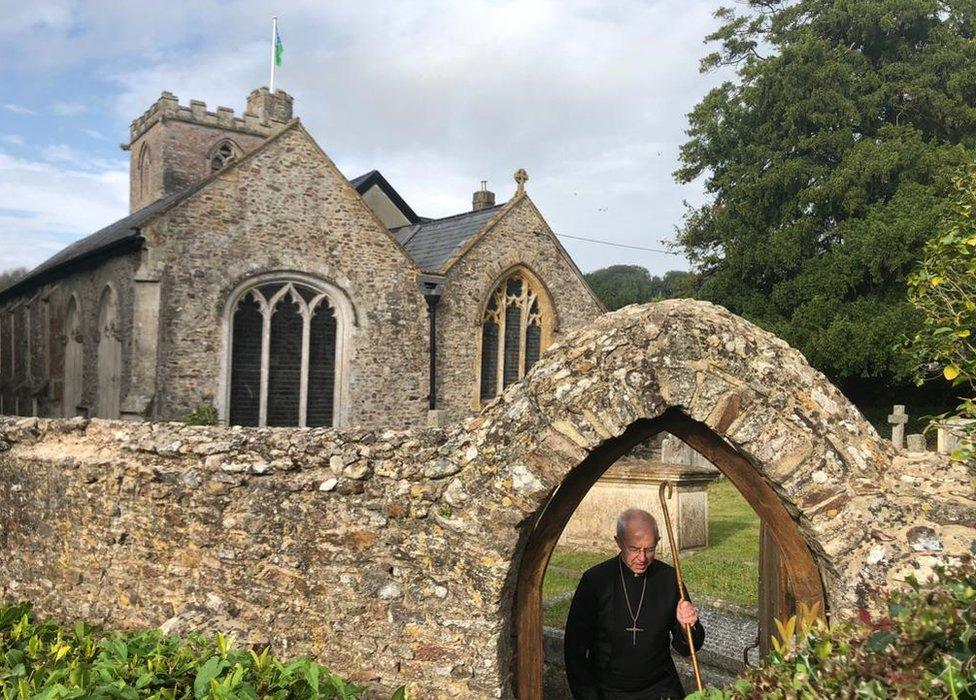
The archbishop at St Andrews Church in Feniton, where the route begins
The archbishop said opening the pilgrimage was a "huge treat", as he had a fascination with the story of Bishop Patteson.
"One of the great things is that he made no distinction between the Melanesian people and the Europeans who were with him.
"As the far as they were concerned they were one Church, one people, brothers and sisters in Christ.
"He was one of the great equalisers, which is what God calls us to be."

Follow BBC News South West on Twitter, external, Facebook, external and Instagram, external. Send your story ideas to spotlight@bbc.co.uk, external.